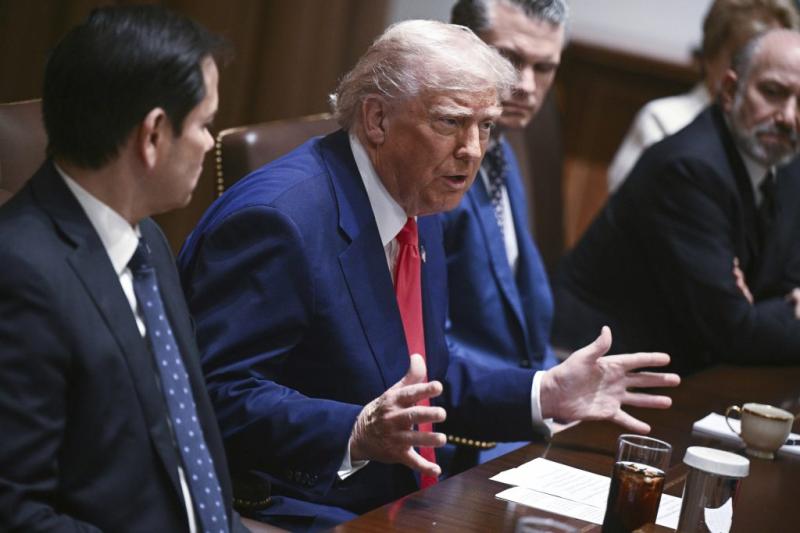The case unfolds amid a recent court ruling that struck down Trump’s tariffs as unlawful, prompting government officials to swiftly file an appeal

By Amjad Qaimkhani
WASHINGTON: US officials defending former President Donald Trump’s trade policies have presented a striking argument in court, asserting that the former president wielded tariffs not merely as economic measures but as strategic tools to help preserve a fragile ceasefire between India and Pakistan.
The case unfolds against the backdrop of a recent court ruling that declared Trump’s tariffs unlawful, a decision that has prompted government representatives to file an appeal. They warn that restricting the president’s authority over trade and tariffs risks more than economic disruption—it could unsettle a delicate balance in one of the world’s most volatile regions. The officials emphasized that Trump’s use of trade policy was deeply entwined with diplomatic efforts aimed at maintaining peace between two nuclear-armed neighbors whose history is fraught with conflict.
The argument hinges on the premise that curbing executive power in this sphere might inadvertently unravel ongoing agreements designed to prevent a resurgence of violence. The stakes, they insist, are not just about trade and economics but about the security and lives of millions caught between long-standing hostilities. At the heart of the debate is the fragile truce that has held, however tenuously, in a region marked by decades of mistrust and conflict. US officials caution that any misstep in handling tariffs and trade relations could provoke renewed tensions, with devastating humanitarian consequences.
Yet, amid these claims, India has consistently distanced itself from suggestions that the Trump administration played a direct role in brokering or enforcing the ceasefire, highlighting the complexity and opacity often characteristic of international diplomacy. This legal battle encapsulates the increasingly blurred lines between economic policy and geopolitics, underscoring how decisions traditionally seen as domestic or economic tools can have profound diplomatic and security implications.
The court’s ruling, and the appeal that follows, thus raise pressing questions about the limits of presidential authority, the role of trade in global peacekeeping, and the delicate balancing act governments must perform when economic interests collide with the imperative for regional stability. As the case unfolds, its implications will resonate far beyond the courtroom, illuminating the intricate and often hidden connections between trade policy and the pursuit of peace.



